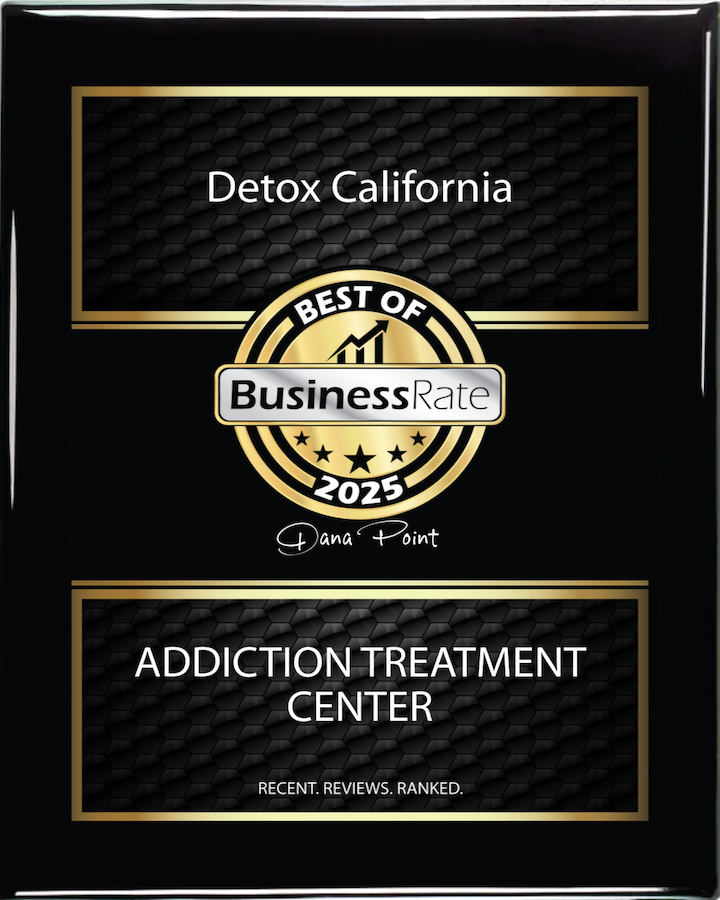Forcing someone into rehab for alcohol addiction is a complex issue, often influenced by state laws and the specific circumstances surrounding the individual’s condition.
In some cases, involuntary rehab or civil commitment may be possible under certain laws, such as involuntary commitment laws that allow for the treatment of individuals who pose a danger to themselves or others due to their addiction.
These laws, which vary from state to state, can apply when a person’s alcohol use has reached a point where they have lost control and are unable to make rational decisions about their health or well-being. States like California, for example, have mechanisms that allow family members to petition for involuntary treatment.
When Can You Admit Someone Against Their Will?
You can admit someone to rehab against their will under certain circumstances, but this often depends on state-specific laws and the severity of the individual’s addiction. The decision to force someone into treatment usually occurs when a person’s alcohol or drug use has spiraled out of control, posing a risk to their safety or the safety of others. Below are several common situations where involuntary treatment may be possible:
- Court-Ordered Rehabilitation: A judge may order someone into a treatment center as part of a legal sentence, often following a DUI, drug-related offense, or another criminal act. This form of rehabilitation is typically structured as part of a plea deal or as an alternative to jail time, with the goal of addressing underlying substance use disorders that contributed to the legal issues.
- Family Intervention: In some states, family members can petition the court to have a loved one involuntarily admitted to rehab if they are a danger to themselves or others. This process usually involves presenting evidence that shows the individual has lost control over their substance use and is unable to meet their basic needs or care for their well-being.
- Civil Commitment Laws: Several states, including California, have civil commitment laws that allow for the involuntary hospitalization or rehabilitation of individuals with severe addiction or mental health disorders. These laws are often used when all other options have been exhausted, and the person’s addiction poses a serious risk to their health or safety.
- Emergency Holds: In cases of immediate danger, medical professionals may place an individual under an emergency hold. This is a short-term solution, typically lasting 48 to 72 hours, where the person is held in a facility for evaluation. During this time, doctors and mental health professionals assess the individual to determine if longer-term treatment is necessary.
While these options can help protect individuals from the dangers of substance abuse, they are often seen as measures of last resort. Whenever possible, addiction treatment centers, interventionists, and family members encourage voluntary treatment as the most effective path toward long-term recovery. Involuntary treatment may stabilize someone temporarily, but meaningful, lasting recovery is more likely when the individual participates willingly in their care.
In What States Can You Commit a Family Member?
The ability to commit a family member to rehab for alcohol or drug addiction varies depending on state laws. Some states have specific involuntary commitment laws, often referred to as civil commitment or involuntary treatment laws, which allow family members to petition the court for a loved one to enter rehab. These laws are typically applied when the person poses a danger to themselves or others due to their addiction. Below are a few states where these laws exist:
- California: In California, family members can utilize the state’s mental health laws to petition for involuntary commitment under certain conditions. These laws are often used when an individual’s substance abuse severely impacts their well-being or poses a danger to others.
- Florida (Marchman Act): Florida’s Marchman Act allows family members to petition the court to commit someone to rehab if they are struggling with substance abuse and are a danger to themselves or others. This law is widely used and provides an avenue for family members to intervene when voluntary treatment is not an option.
- Kentucky: Kentucky has a similar law to Florida’s Marchman Act, called Casey’s Law. This law allows parents, relatives, or friends to request involuntary addiction treatment for someone who refuses to seek help but is clearly struggling with substance abuse.
- District of Columbia: In the District of Columbia, involuntary commitment is possible for individuals with severe alcohol or drug addiction when they are at risk of harming themselves or others. Family members can petition the court to have the person committed to a treatment center for care.
These laws are often viewed as a last resort when an individual is unwilling or unable to seek treatment voluntarily. While involuntary rehab can be lifesaving in some cases, long-term recovery is most successful when the person is actively engaged in their treatment process. Family members should consult with medical professionals or legal experts to explore all available options before pursuing involuntary commitment.
What Will You Need for Involuntary Commitment Laws?
In states that allow involuntary commitment for addiction treatment, family members must present a strong case in court to prove that their loved one meets the legal criteria for forced admission. The process typically requires showing clear evidence that the individual is struggling with a substance use disorder and that their addiction poses a real danger. Courts are cautious about infringing on personal freedoms, so the burden of proof often rests on the family seeking the commitment.
In order to admit a loved one under involuntary commitment laws, family members will need to prove the following in court:
- The individual has a substance use disorder.
- The individual has already harmed themselves or others, or they present the current risk of doing so.
Involuntary commitment laws are designed to protect individuals who are unable to make sound decisions about their health due to the severity of their addiction. The goal is not only to stabilize the individual but also to provide them with a treatment plan that addresses their long-term recovery. While the legal process may seem challenging, it offers a lifeline for families seeking to help a loved one who is unable or unwilling to seek help on their own.
How to Start Involuntary Commitment
Starting the process of involuntary commitment for a loved one struggling with addiction can feel overwhelming, but it is a necessary step when their health and safety are at risk. In many states, family members can petition the court to admit someone into rehab without their consent if they meet certain criteria. Below is a step-by-step guide on how to start this process.
1. Understand the Legal Requirements
Before beginning the process, it’s essential to familiarize yourself with your state’s specific laws regarding involuntary commitment. Each state has its own set of guidelines, such as California’s 5150 law, the Marchman Act in Florida, or Casey’s Law in Kentucky. These laws often require evidence that the person’s addiction has resulted in harmful behaviors or that they pose an imminent danger to themselves or others. Research your state’s laws to ensure you are eligible to file for involuntary commitment.
2. Consult with a Legal or Medical Professional
It’s helpful to first consult with a lawyer, addiction specialist, or medical professional to understand the legal implications and treatment options available. These professionals can guide you through the necessary paperwork, explain your state’s specific laws, and provide expert testimony if needed. In some cases, the involvement of a medical professional may be required to assess the individual’s condition before filing.
3. Gather Evidence of the Substance Use Disorder
You will need to provide concrete evidence that your loved one is suffering from a substance use disorder. This can include medical records, reports from rehab centers, and personal testimonies from friends or family members who have witnessed the person’s destructive behaviors. This evidence is crucial when filing a petition for involuntary treatment, as it demonstrates the severity of the addiction.
4. File a Petition with the Court
Once you have the required documentation, the next step is to file a petition with your local court. This petition will detail your loved one’s substance abuse problem and the reasons why involuntary treatment is necessary. The court will review the petition and decide whether to hold a hearing based on the evidence presented. Depending on your state, you may need to file with either a family court or a civil court.
5. Attend a Court Hearing
After filing, a court hearing will be scheduled where you, along with legal and medical professionals, will present your case. Your goal is to prove that the individual’s substance use disorder is causing harm and that they are incapable of seeking help on their own. The judge will evaluate the evidence, and if they determine the criteria are met, they may order involuntary rehab for a specified period.
6. Follow the Admissions Process
Once the court orders the individual into treatment, the next step is the admissions process. Contact the treatment facility, such as a drug rehab center, to coordinate intake. You may need to provide medical records, insurance information, and other details. Some states require that a medical detox be part of the initial process, especially for substances like alcohol or opioids that may cause severe withdrawal symptoms.
7. Support Long-Term Recovery
Involuntary commitment is often just the first step in the recovery journey. Once the individual enters rehab, maintaining communication with healthcare professionals and supporting your loved one’s long-term recovery is crucial. This might involve attending family therapy sessions, monitoring their progress, and preparing for aftercare options such as outpatient treatment or sober living arrangements.
By following these steps, you can initiate the process of involuntary commitment, ensuring that your loved one receives the treatment they need, even if they are unable or unwilling to seek it themselves.
Which States Have Involuntary Commitment Laws?
Involuntary commitment laws allow family members, healthcare professionals, or legal authorities to commit someone to rehab or mental health treatment when that individual is a danger to themselves or others. These laws, often referred to as civil commitment laws, vary from state to state, and each jurisdiction has its own criteria and procedures for admitting someone involuntarily. These laws can be used to address severe cases of alcohol or drug addiction where the individual is unable to recognize the need for help.
- Alaska
- Arkansas
- California
- Colorado
- Connecticut
- Delaware
- District of Columbia
- Florida
- Georgia
- Hawaii
- Indiana
- Iowa
- Kansas
- Kentucky
- Louisiana
- Maine
- Massachusetts
- Michigan
- Minnesota
- Mississippi
- Missouri
- Montana
- Nebraska
- North Carolina
- North Dakota
- Ohio
- Oklahoma
- Pennsylvania
- Rhode Island
- South Carolina
- South Dakota
- Tennessee
- Texas
- Vermont
- Virginia
- Washington
- West Virginia
- Wisconsin
While these laws offer a path for families to intervene, the requirements and processes can differ widely across the country. It’s essential to consult with legal or medical professionals in your state to understand the specific conditions under which involuntary treatment is permitted. Additionally, voluntary participation in rehab is often seen as the most effective path to long-term recovery, so families should consider all options before pursuing legal action.
Involuntary Commitment vs. Intervention
Involuntary commitment and intervention are two distinct approaches to helping someone struggling with alcohol or drug addiction, each with its own advantages and limitations. Involuntary commitment involves legal action, where a court orders a person into treatment due to their inability to make rational decisions about their health or because they pose a danger to themselves or others. This process is governed by state laws and often requires substantial evidence, such as proof of a substance use disorder or previous harmful behavior. While involuntary rehab can be effective in stabilizing an individual, its success relies heavily on long-term engagement in treatment, as a person forced into rehab may initially resist participation.
On the other hand, an intervention is a less formal, yet powerful method of encouraging someone to seek help voluntarily. This approach involves family members, friends, or a professional interventionist confronting the individual about their addiction in a structured setting. The goal of an intervention is to break through the denial often associated with substance abuse and encourage the person to enter treatment willingly. Because interventions rely on persuasion and emotional appeals, they can be more successful in fostering genuine commitment to recovery. However, interventions may not always work, and if the individual continues to refuse help, involuntary commitment may become the only viable option.
Find Help with Detox California
If you’re facing the difficult decision of seeking involuntary rehab for a loved one or considering intervention as an option, Detox California is here to help. Our compassionate team understands the complexities of addiction and offers evidence-based treatment programs tailored to meet each individual’s unique needs. Whether you’re exploring court-ordered treatment or need guidance on conducting a successful intervention, we’re here to provide the support and expertise you need during this challenging time.
Don’t wait until it’s too late—contact Detox California today to start the journey toward recovery. Our admissions team is available to help you navigate the process and find the best treatment options for your loved one. Together, we can take the first step toward a healthier, addiction-free life.

















